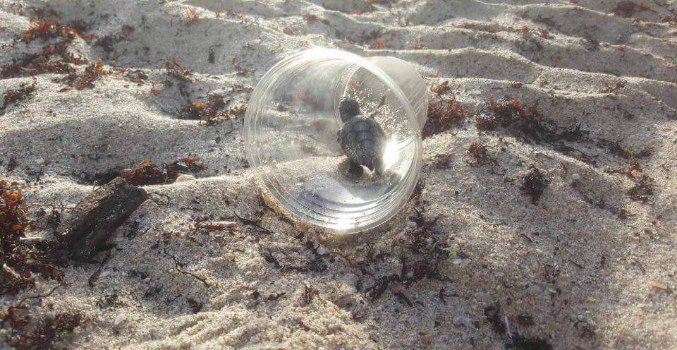Florida Policy Initiative
A Voice for Florida’s Sea Turtles
The Sea Turtle Conservancy (STC) has a long history of influencing state, federal and international policies that impact sea turtles and their habitats. STC places a special emphasis on the policy decisions made in Florida because, as the third-most populous state and a global diversity hotspot, the lawmaking decisions in Florida have wide-ranging impacts for marine life. Florida’s beaches are among the most important nesting grounds for threatened and endangered sea turtles in the Western Hemisphere. In addition, Florida’s vast sea grass beds, lagoons, estuaries and nearshore reefs are utilized by sea turtles during various stages of their life cycle. Through tireless effort and science-based education, STC has influenced numerous changes in policy for the benefit of Florida’s sea turtles.
Every year, the Florida Legislature, made up of 120 House members and 40 Senate members, convenes to pass legislation. STC closely monitors bills and policies that could positively or negatively impact Florida’s sea turtles and their habitats and, when necessary, calls upon its members and followers to contact legislators about these policies.
2025 Legislative Session
The 2025 Florida Legislative Session is taking place from March 4 to May 2. Our legislative priorities are focused on reducing the many threats that Florida’s sea turtles face, including: climate change and sea level rise, risky coastal development, plastic pollution, and degraded water quality and associated impacts to sea turtle food sources. Below are bills that STC is monitoring:
HB 565/SB 1822: Regulation of Auxiliary Containers (Representative Blanco and Senator Martin)
Last year, the Florida environmental community widely opposed and defeated SB 1126, a bill that would have prevented local governments from regulating single-use items (such as plastic bags or Styrofoam boxes) that pollute our environment. Unfortunately, that same bill is back as HB 565 in 2025. If this bill advances, we will again call upon our network to express their support of local government’s authority to reduce the flow of trash in their waterways.
Bill status: HB 565 passed through the Natural Resources & Disasters Subcommittee and was “temporarily postponed” in the Intergovernmental Affairs Subcommittee on 4/1. It still needs to pass through this committee and the State Affairs Committee before heading to the full House. SB 1822 passed through the Environment and Natural Resources Committee and the Community Affairs Committee. It still needs to pass through the Rules Committee before heading to the full Senate.

SB 80/HB 209: State Land Management (Senator Harrell, Representative Snyder)
After Florida’s Department of Environmental Protection announced a plan last year to develop nine Florida State Parks – six of which include sea turtle nesting habitat – bipartisan outcry forced the Department to abandon the plan. SB 80/HB 209 is a rare good bill that intends to prevent a similar proposal from occurring in the future, but it needs to be strengthened to further protect all of Florida’s public lands. Amendments are needed to explicitly define what types of development are prohibited in our State Parks, take out vague terms, and more.
Bill status: SB 80 was approved in the Senate Environment and Natural Resources Committee 9-0. Remaining two stops are Appropriations Committee on Agriculture, Environment, and General Government Committee and Fiscal Policy Committee. HB 209 was approved in the Natural Resources & Disasters Subcommittee and is now in the State Affairs Committee.
CS/SB 1118: Land Use and Development Regulations
This bill proposes to ban local initiatives or referendums regarding land regulation. The bill designates certain rural areas as “agricultural enclaves” and would allow developers to bypass local rules and restrictions on development, which could result in high-density development in sensitive natural areas. The bill also proposes to weaken local governments’ ability to manage growth by requiring a supermajority vote to pass restrictions to bypass rural boundary rules and just go through an administrative process to develop there, instead of having to get local government approval, which would require public hearings where residents can give their input.
Bill status: SB 1118 was approved 5-3 in the Senate Community Affairs Committee. Its remaining two stops are the Regulated Industries Committee and the Rules Committee.
Our Policy Initiatives
Stay Informed
To be informed and support STC’s policy initiatives, we suggest doing the following:
Check Back
Checking this page for up to date information on legislation and other topics that impact sea turtles and their habitats.
Sign Up
Signing up to receive Sea Turtle Conservancy’s Turtle Talk E-newsletter. You can subscribe using the form towards the bottom of the page
Monthly Donation
Supporting Sea Turtle Conservancy (If you prefer, you can make a monthly donation of $5 or more to support us throughout the year)
How to Contact Florida’s Legislators
Florida residents and organizations can have the most influence by directly contacting legislators in their district. If you are unsure who your Florida Senator or Representative is, click the links below:
Find Florida Senators: https://www.flsenate.gov/senators/find
Find members of the Florida House Representative: https://www.myfloridahouse.gov/findyourrepresentative
While sending an email about a bill or policy can be an effective way to reach a legislator, calling and stating your concerns is more effective, and attending committee meetings where bills will be considered and signing up to speak is even more effective.
How non-Floridians can help
People residing outside the state of Florida can still make a difference for sea turtles. If you are concerned about a bill or policy, please contact the relevant entity mentioned in each “action needed” section.
If you have additional questions about STC’s Policy Priorities, please email Stacey Gallagher at stacey@conserveturtles.org.